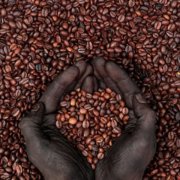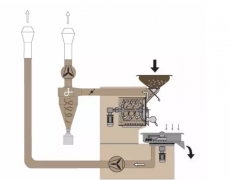The cultural capital of cafes everywhere-- Paris Flower God Cafe Prokop Cafe
There are probably more cafes in Paris than any other city in the world. Walking in the streets of Paris, three steps a shop, five steps a pavilion, it is amazing.
On a sunny day, people like to drink coffee under the Arbor and parasol along the street. At a glance, it is almost person-to-person, person-to-person, such as from a distance, more like a colorful picture dotted on both sides of the street.
Why do Parisians like "making coffee" so much? Almost every day (especially on weekends), starting after 10:00, lasts until 12:00 in the middle of the night, or even in the early hours of the morning, regardless of age, color or sex. I think, on the one hand, this has something to do with the eating and cultural habits of Westerners. Chinese people like to drink tea, Europeans and Americans like coffee, and everyone has their own preferences; secondly, Parisians seem to be pursuing a kind of sentiment, an elegant, leisurely atmosphere to release emotion. It is true that filling the stomach and relieving hunger and thirst are the necessary physiological needs of life, but people should also have a more important taste and enjoyment of life with the integration of physical and psychological elements. When people on the roadside are watching or enjoying the view of the cafe along the street, they are also admiring the various passers-by in the street. The boss told every visitor that the cafe used to be Hemingway's favorite place. This leads to a more interesting topic: many famous cultural celebrities in Paris have been predestined with cafes-the Flower God Cafe, where French existentialist Sartre and his partner Beaufort often meet. Camus, another famous French existential writer, is also a regular here. The Twin Puppet Cafe, named after two Chinese Qing Dynasty wooden dolls hanging on the wall, is also frequented by Sartre and Beaufort because it is so close to the "Flower God" that it is only a few steps away. Interestingly, it is said that Picasso and his girlfriend fell in love at first sight here, and Hemingway is no doubt a regular here-there are photos to prove that he frequented here during his stay in Paris.
In addition, Prokop Cafe, known as the first literary cafe in France, is often visited by writers such as Voltaire, Rousseau, Balzac, Hugo, etc.; Bocobo Cafe, a very old cafe in Paris, is a place where Voltaire often drinks coffee, and it is also a favorite place for Hugo and Balzac. Elite Cafe, decorated with artistic flavor and large storefront, Hemingway, Miller and Bennett often come here to drink coffee; Peace Cafe, the most famous coffee shop in Paris, is frequented by famous writers Zola, Maupassant, Wilde and others; Hookai Cafe, located in the Champs Elysees, attracts many movie stars and directors who often meet, discuss and sign contracts here.
There is a saying that if Western literati do not often go to cafes and have a few drinks, their creative inspiration will not come out. It seems that there is some truth in this. Otherwise, why would the cafes in Paris be so prosperous? Almost every day is full of friends and the aroma of coffee.
It is inconceivable that if there were no cafes in Paris, would it still be Paris?

Important Notice :
前街咖啡 FrontStreet Coffee has moved to new addredd:
FrontStreet Coffee Address: 315,Donghua East Road,GuangZhou
Tel:020 38364473
- Prev

Does fair trade work? Fair Trade Movement Progress and Opposition
Professional barista exchanges, please pay attention to coffee workshop (Weixin Official Accounts cafe_style) About fair trade, the author believes that the most appropriate paragraph to explain the concept of fair trade is Ms. Marlene's words in Banana War and Fair Trade: Fair trade certification is a two-way commitment. Consumers create a way to improve the lives of producers and their families, with
- Next

According to the classification of professional roasters, what are the different baking methods for different roasters?
In addition to the degree of baking is divided into factions, even the roaster also has a family view. At present, there are two major professional roasters, one is the traditional rolling furnace (Drum Roaster), and the other is the newly developed hot gas furnace (Air Roaster). The former is heated by gas across the bottom of the furnace, while the metal blades in the furnace keep stirring the beans, while the latter bakes the beans with high-temperature hot air flow.
Related
- What brand of black coffee is the most authentic and delicious? what are the characteristics of the flavor of the authentic Rose Summer Black Coffee?
- Introduction to the principle and characteristics of the correct use of mocha pot A detailed course of mocha pot brewing coffee is described in five steps.
- Which is better, decaf or regular coffee? how is decaf made?
- How much is a bag of four cat coffee?
- How about four Cat Coffee or Nestle Coffee? why is it a cheap scam?
- Which is better, Yunnan four Cats Coffee or Nestle Coffee? How about cat coffee? is it a fake scam? why is it so cheap?
- How about Cat Coffee? what grade is a hoax? which instant coffee tastes better, four Cat Coffee, Nestle Coffee or G7 coffee?
- Process flow chart of coffee making-Starbucks coffee making process what coffee tastes good at Starbucks
- The top ten best coffee beans in the world Rose summer coffee or Tanzanian coffee tastes good
- Yunnan four cat coffee is good to drink?_four cat coffee is a big brand? four cat blue mountain coffee is fake?

